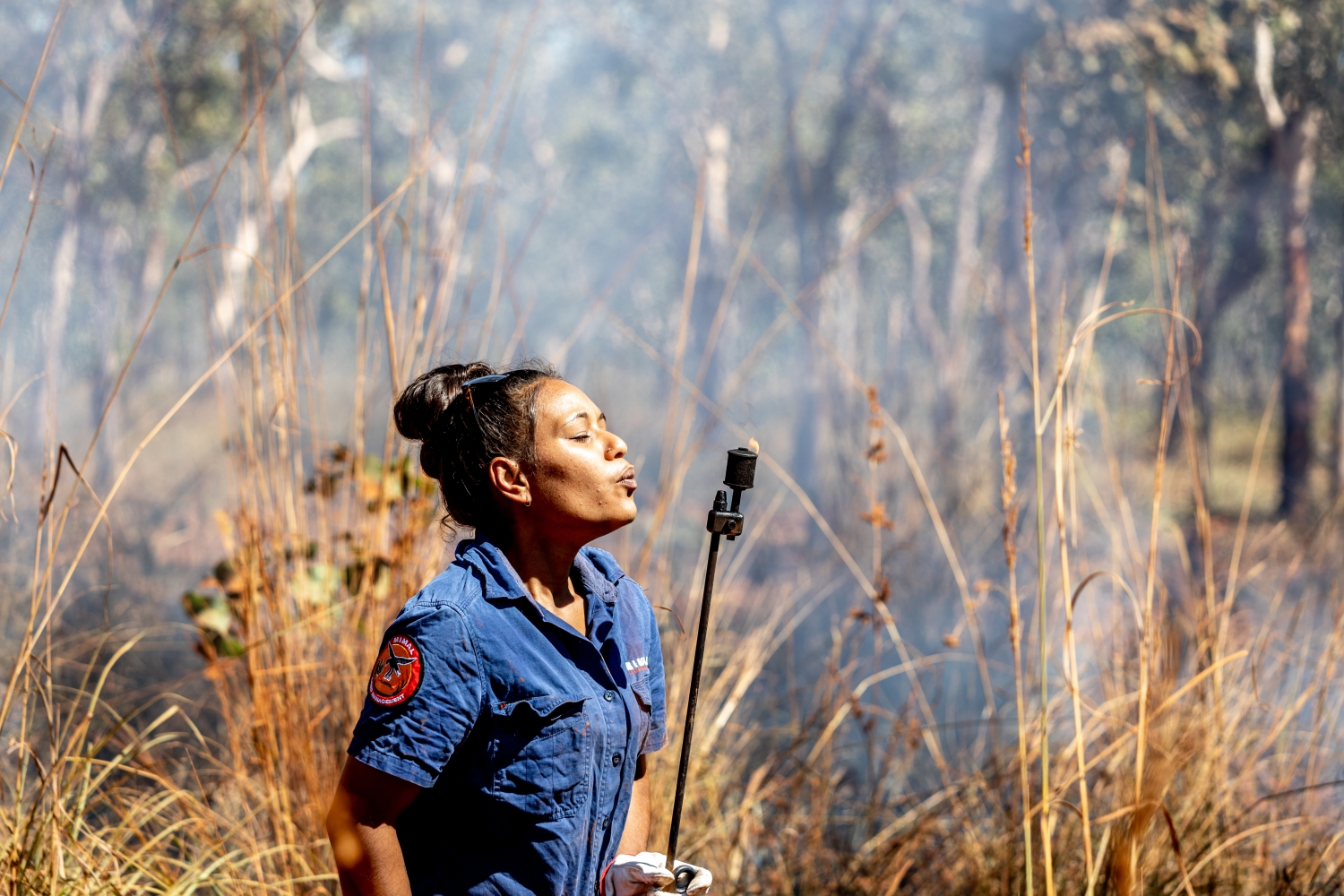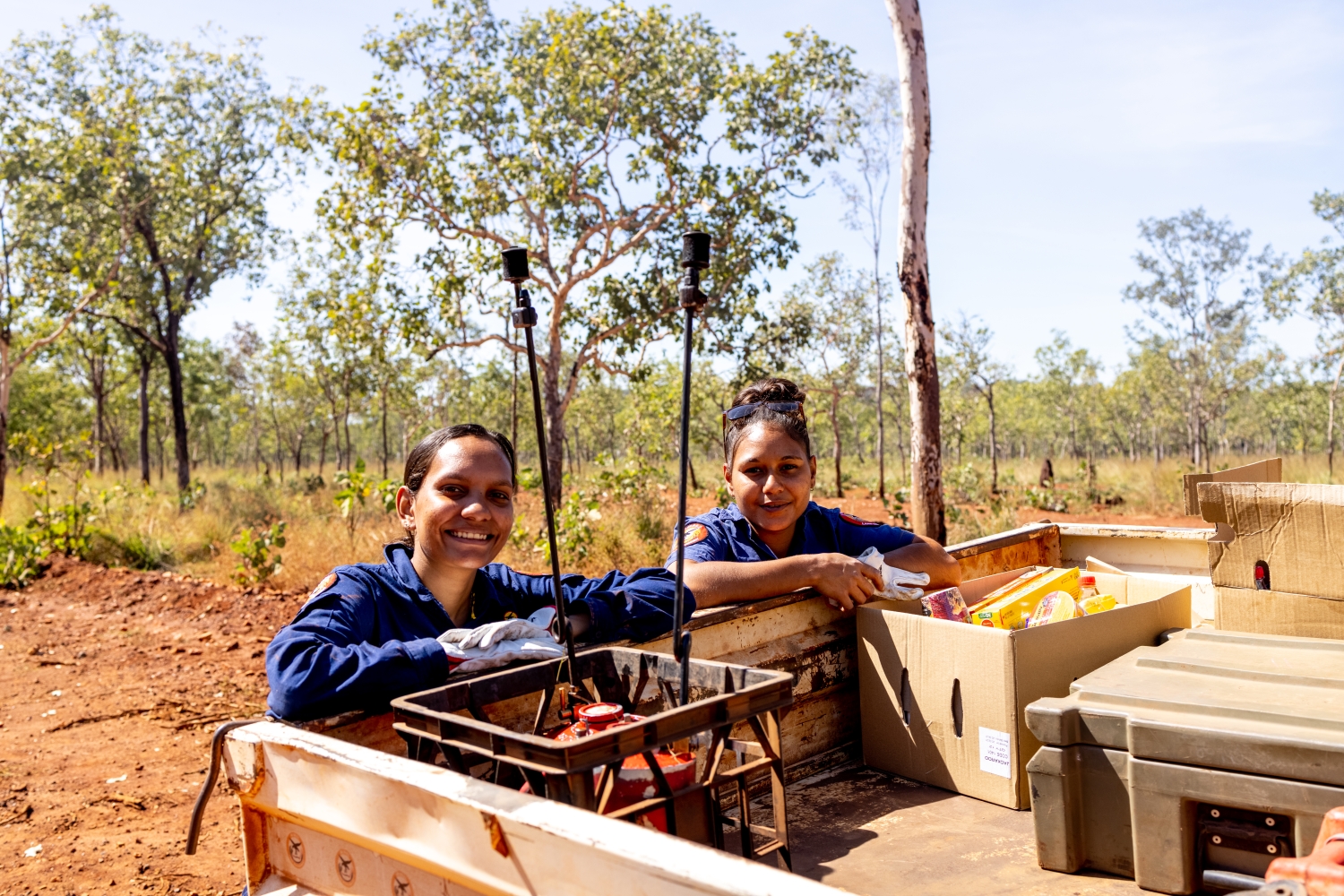“I started as a ranger in 2015,” Everlyn says. “I was by myself with all the boys, had to fight fire by myself with all the boys. The boys taught me how to fight fire. And they looked after me, too, out bush.”
Everlyn and Venicia were two of the first female rangers when Mimal Land Management became an independent entity from the Northern Land Council (NLC), and they are part of a growing movement to create more meaningful and culturally appropriate opportunities for women living on Australia’s Indigenous estates. Traditionally, Aboriginal women play a specific role in caring for Country. They have exclusive knowledge and practices passed down from one woman to another for generations, concerning animal behavior, ceremonial practices and “women’s business,” while Aboriginal men play a different but equally important role. This means that gender-specific programs of work are needed to fully nurture their distinct cultural knowledge and practices.
Everlyn and Venicia have come to Barrapunta to join a gathering of men and women from 11 Indigenous ranger groups working in all corners of Arnhem Land. With guidance from Aboriginal-owned Arnhem Land Fire Abatement (ALFA), they’ve come together to plan how they will use fire to manage their lands this year.
Before more women joined the ranger workforce, Everlyn says, “I had to cook for all of us. When they were out doing fire work, sometimes I was the only one back cooking. I had to ask Elizabeth [an Elder] and her partner to come along to give me a hand, you know, to cook damper, because I didn’t know how!” She laughs and gestures back toward the campsite at Barrapunta, where she and her colleagues will be pulling apart huge portions of dense damper for lunch, freshly baked in a cast-iron pot on the fire that morning.
“That’s what I used to do before, too, cook for the boys,” adds Venicia, “because there were three of us [women] when I started.”
“We do our own jobs now,” Everlyn says with a smile.

